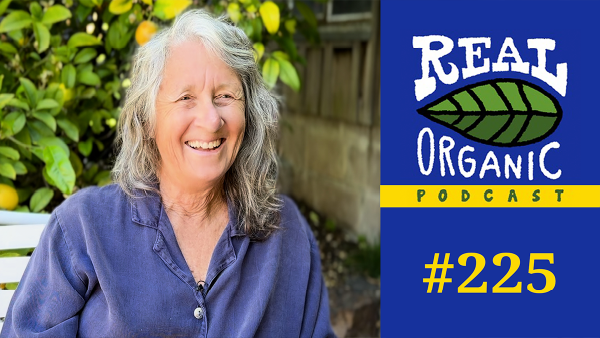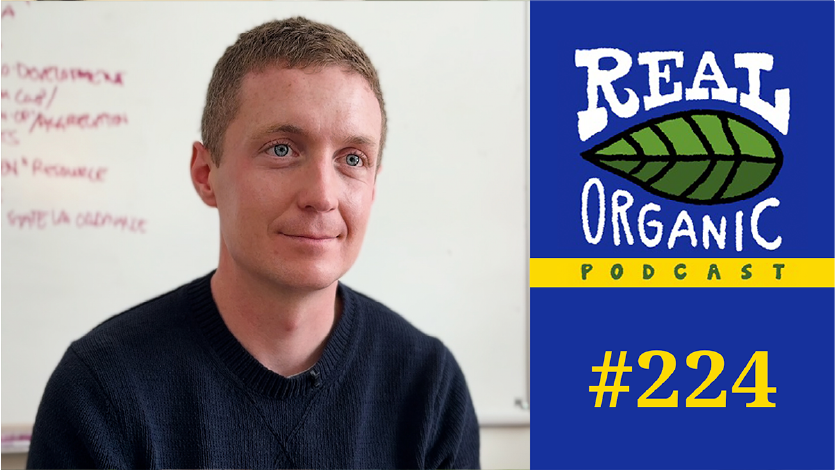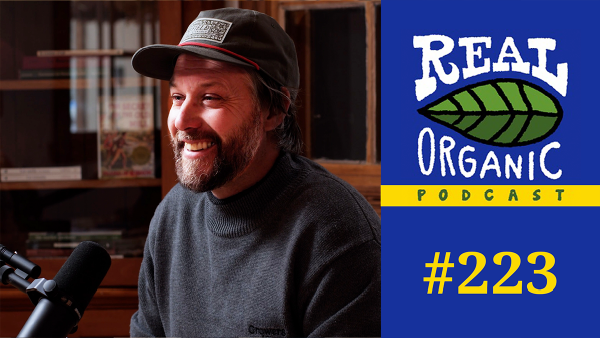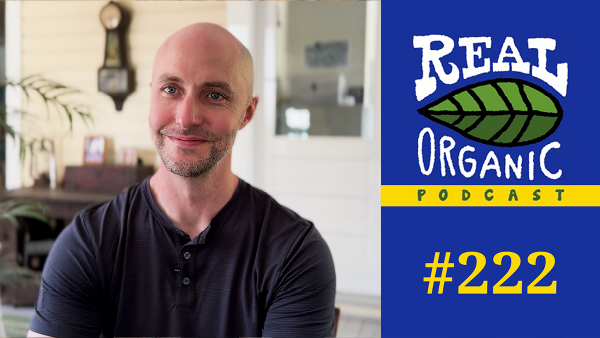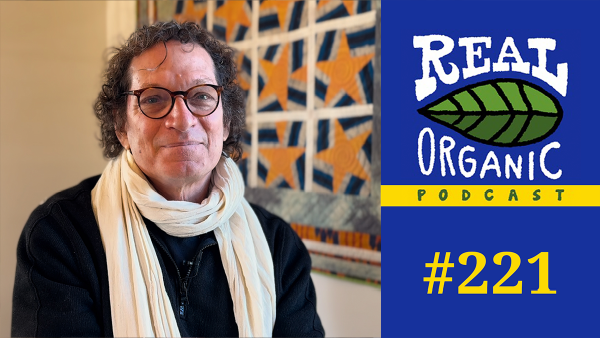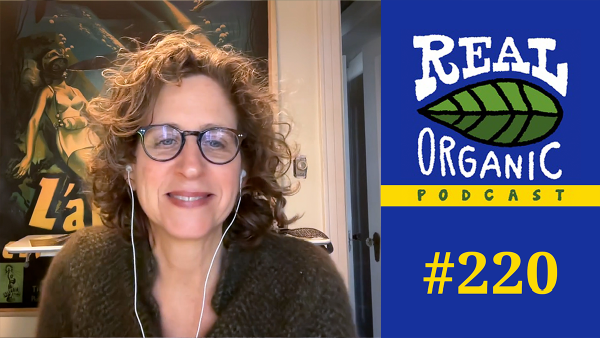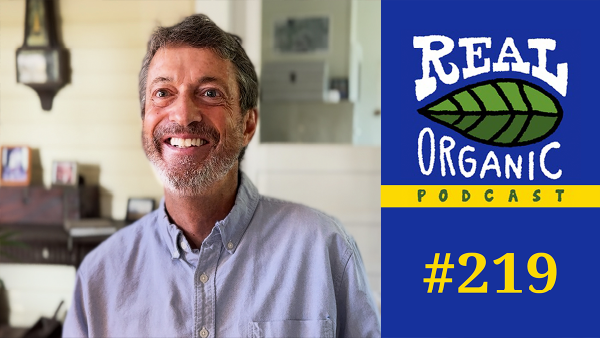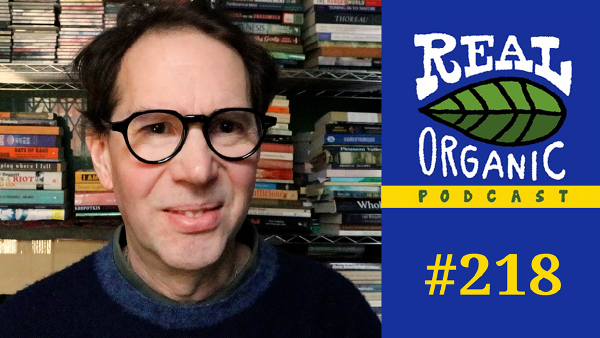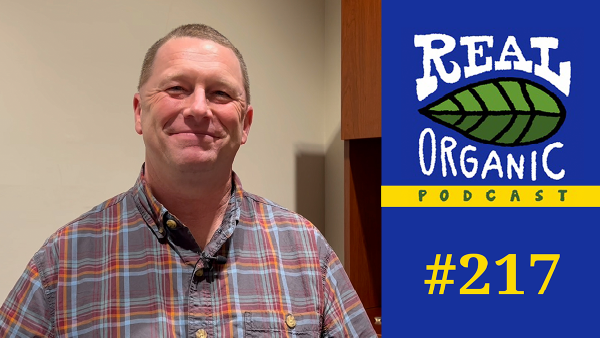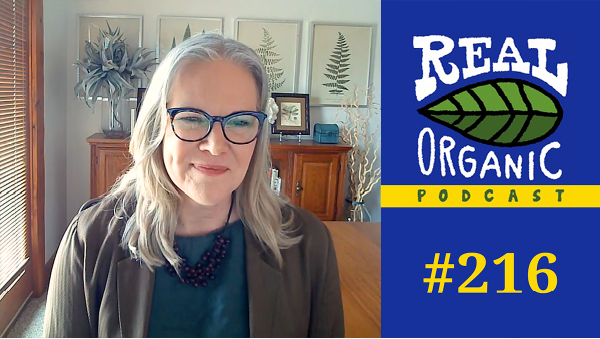Episode #057
Kevin Engelbert: Calling Out Corruption In Organic Dairy
Welcome! You can subscribe and download episodes of our show through your favorite podcast app.
You can also subscribe to receive the video version of each episode on our YouTube channel.
Our Kevin Engelbert interview has been edited and condensed for clarity.
Dave Chapman
(02:32):
Welcome to the Real Organic Podcast. I’m talking today with Kevin Engelbert. I’ve known Kevin for quite a while on the phone and via emails, but this is the first time we actually got to meet face to face. So Kevin is a pioneering organic farmer down here in New York. And also served a five-year term on the National Organic Standards Board and also one of the pioneer farms of the Real Organic Project. So Kevin, welcome.
Kevin Engelbert
(03:08):
Thank you. Glad to be here.
Dave Chapman
(03:10):
Yeah, it’s a pleasure. So tell us a little bit about your farm. I know what we’re gonna get into, but let’s just start with about what you’re doing and how you got started.
Kevin Engelbert
(03:24):
How we got started. Okay. Well, a reader’s digest version, Dave: I got outta college in ’79. I went to a liberal arts school cause everybody told me you don’t wanna be a farmer, but after being there a couple days, I realized that I did. But I stuck it out, got a degree in economics with a minor in mathematics. And by that time, which was the summer spring of ’79, we were struggling on our farm, trying to keep animals alive and trying to grow crops. And we had to purchase 20 bred heifers that summer to maintain cow numbers. And I thought it was a pretty big deal for me to be 22 years old and go to the federal land bank or farm credit and say, “I need to borrow 20 grand to buy some heifers. I’m gonna take over the farm.” And they said, no problem. Let us know if you need more.
(04:16):
We were at a family picnic that August after this had all transpired, and I walked up to my grandmother and told her what I had just done. I had my chest out a little bit thinking I was pretty hot stuff to be able to do that at such a young age. And expecting a pat on the back, she stuck her lower lip out and looked at me and said, “All I know is when your grandfather and I were running this farm, we had bred heifers to sell every year. ” And that was my aha moment. And I started thinking about it and started looking at our books, cause I had never really paid any attention to any of that. Growing up, I was just happy-go-lucky and loved to work on the farm. Then when I went away to college and we were spending $25,000 a year then on fertilizers and chemicals and pesticides and herbicides and all of that. And we were still spending a thousand dollars a month on vet bills, trying to keep our cows alive, trying to get ’em bred back,and trying to keep them healthy.
(05:25):
And we were failing at both places. We couldn’t grow crops, we couldn’t keep cows alive. And I realized then that there had to be a connection between the use of all these artificial or chemical inputs and our cows not being healthy.
(05:40):
So we quit cold turkey. We tried that spring of 1980 to get our alfalfa started with a nurse crop rather than using Eptam, I believe it was at the time, and had a very successful stand for a change. And in ’81 we went cold turkey and stopped using everything. And that was how we got our start. It took about seven years before I realized we were really, we were onto something. And we got certified in 84. Cause we tried to get a market for our own milk, put in a small processing plant. But with our debt load at the time, you know, no bank – they just laughed at us and said, “this is just a fad. We’re not gonna lend you any money to do that. You’re just gonna go under if we do.” But we knew we were right.
(06:31):
We knew that this was the right way to go, because by ’87 instead of having a vet on our farm every week to try to keep cows bred back and get ’em clean after they’ve had calves and treat their mastitis with concoctions, that probably weren’t legal, we got to the point where instead of coming every week, they were coming every other week. And by ’87 they were on an as-needed basis. So we knew we were on the right track. Plus our crops being started, being able to grow crops without having leaf taller than the corn, without having noted take over the AFL fields and sold all of our spraying equipment. And, and haven’t looked back, took us 20 years before we finally got a, a market for our game milk. We like to think we transitioned for 20 years.
(07:18):
So, but we finally got a market with Organic Valley when they moved east and we’ve been with them ever since. And now today, my wife Lisa has started a retail store and we divert a small percentage of our milk to cheese. And we also sell meat and poultry and pork, plus a lot of other local products and local farmers at our store. And two of our three sons have come back to the farm and have taken over now. So I’m just an advice giver and an occasional equipment operator. And I help with the bookwork, some of the bookwork. We have a small organic grain business that we deliver to a couple farms now.
Dave Chapman
(08:04):
Great. What what’s what’s the path for organic dairy farm these days? Are things getting better or worse?
Kevin Engelbert
(08:12):
Oh, things are definitely far worse.


